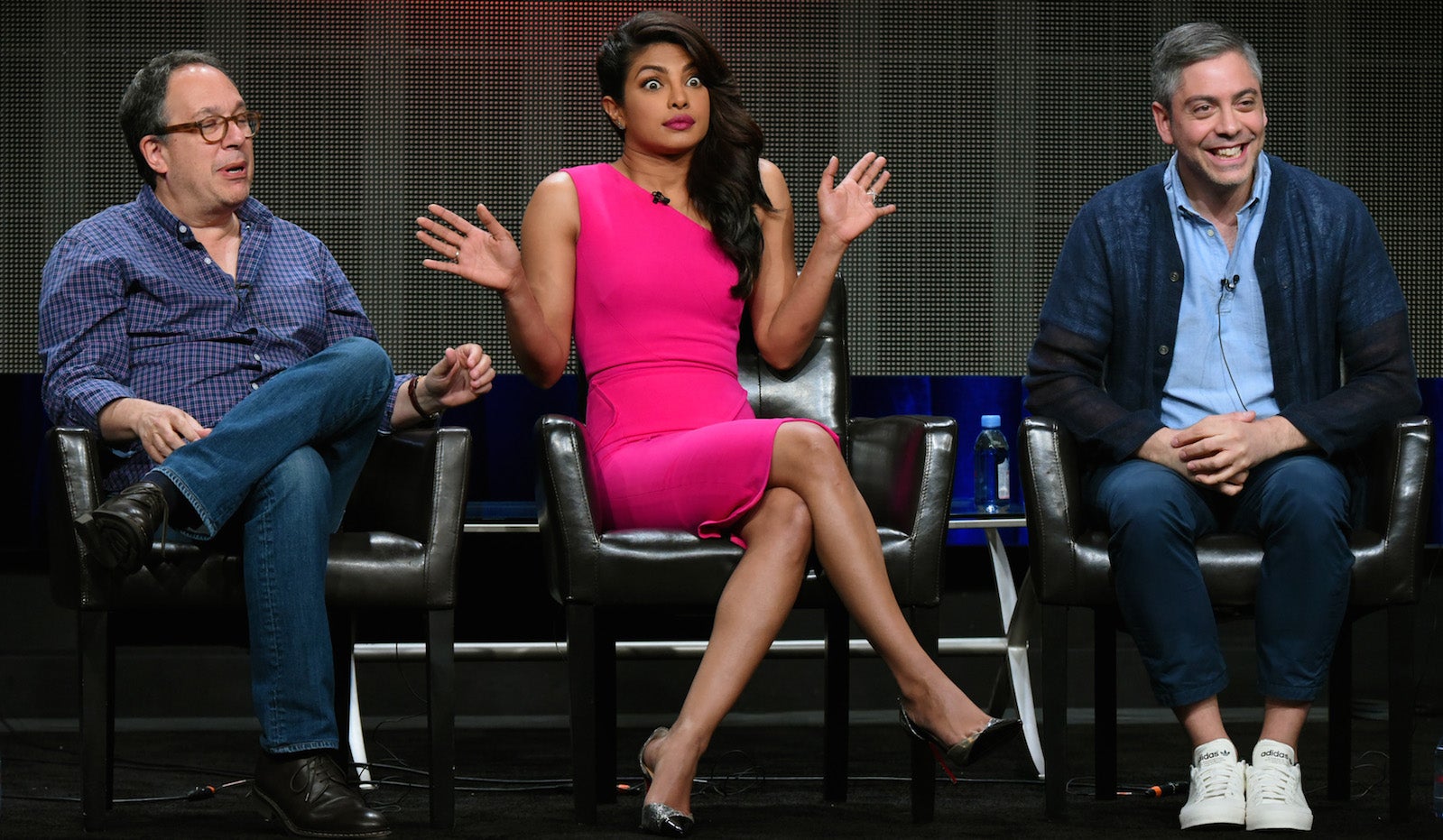Sorry to break it to you, Priyanka Chopra, but you’re a feminist
This month, while walking along a subway stop in New York, I saw something rare: The face of an Indian actress on a billboard. It was an advertisement for Quantico, a drama which premieres in the US on Sept. 27 on ABC.


This month, while walking along a subway stop in New York, I saw something rare: The face of an Indian actress on a billboard. It was an advertisement for Quantico, a drama which premieres in the US on Sept. 27 on ABC.
The TV series has been making news in the Indian press for several months now exactly because of that face I saw: it features Priyanka Chopra as the lead character, making her the first Bollywood actor to headline an American show.
Not only is it unprecedented that an Indian actress is the face of a major American TV series, 33-year-old Chopra is also breaking several stereotypes with her role. She plays Alex Parrish, a young FBI recruit who is half Indian and half Caucasian. In the teasers, her character seems modern, vivacious and thankfully devoid of any ethnic stereotypes—think Apu-type accent.
But the initial desi pride I felt when seeing the billboard diminished significantly after I read this interview by Chopra in Refinery 29, a lifestyle website. Asked by the interviewer if the show is feminist, the Bollywood star replied:
I don’t think it’s feminist, but it’s empowerment… It’s got very strong female characters, and I don’t think it’s a bra-burning feminist show where you’re like, we hate men, but we have really strong male characters, too… It gives females an opportunity to be equal with the boys, and I think that’s really progressive.
With these statements, Chopra has joined the ranks of educated, urban Indians who shun the word “feminism” like the plague. Many of them appear to believe that feminists are women who hate men and sex and go around burning bras whenever they are angry.
Anyone who has looked up the word in a dictionary would know how horribly inaccurate this assumption is. For the record, this is how Merriam Webster defines feminism:
The belief that men and women should have equal rights and opportunities.
Or, in other words, the movement is about “empowerment” and social “progress.” It is about “strong” women and equal opportunities. Basically, everything that Chopra says Quantico is about, while balking at the word feminism.
I expected Chopra to know better. Apart from being one of the most successful contemporary Bollywood star, she is also a champion of United Nations Girl Up, a campaign whose mission is to promote health, education, safety and leadership of girls in developing nations. She is also a very vocal critic of the huge gap between what male and female actors earn in Bollywood.
And, yet, Chopra chooses to distance herself from a movement that has, for decades, fought those very battles.
In the West, several prominent female actors have done their bit recently to promote feminism. Harry Potter‘s star Emma Watson famously said in her speech at the UN last year:
The more I have spoken about feminism, the more I have realized that fighting for women’s rights has too often become synonymous with man-hating,” Watson said. “If there is one thing I know for certain, it is that this has to stop. For the record, feminism, by definition, is the belief that men and women should have equal rights and opportunities. It is the theory of the political, economic and social equality of the sexes.
More recently, American actress Connie Britton released the following video:
Perhaps Chopra, who not only has her heart in the right place, but also millions of young fans, should take a cue from her Hollywood peers as she makes her TV debut in the US, and overcome her allergy for the f-word.